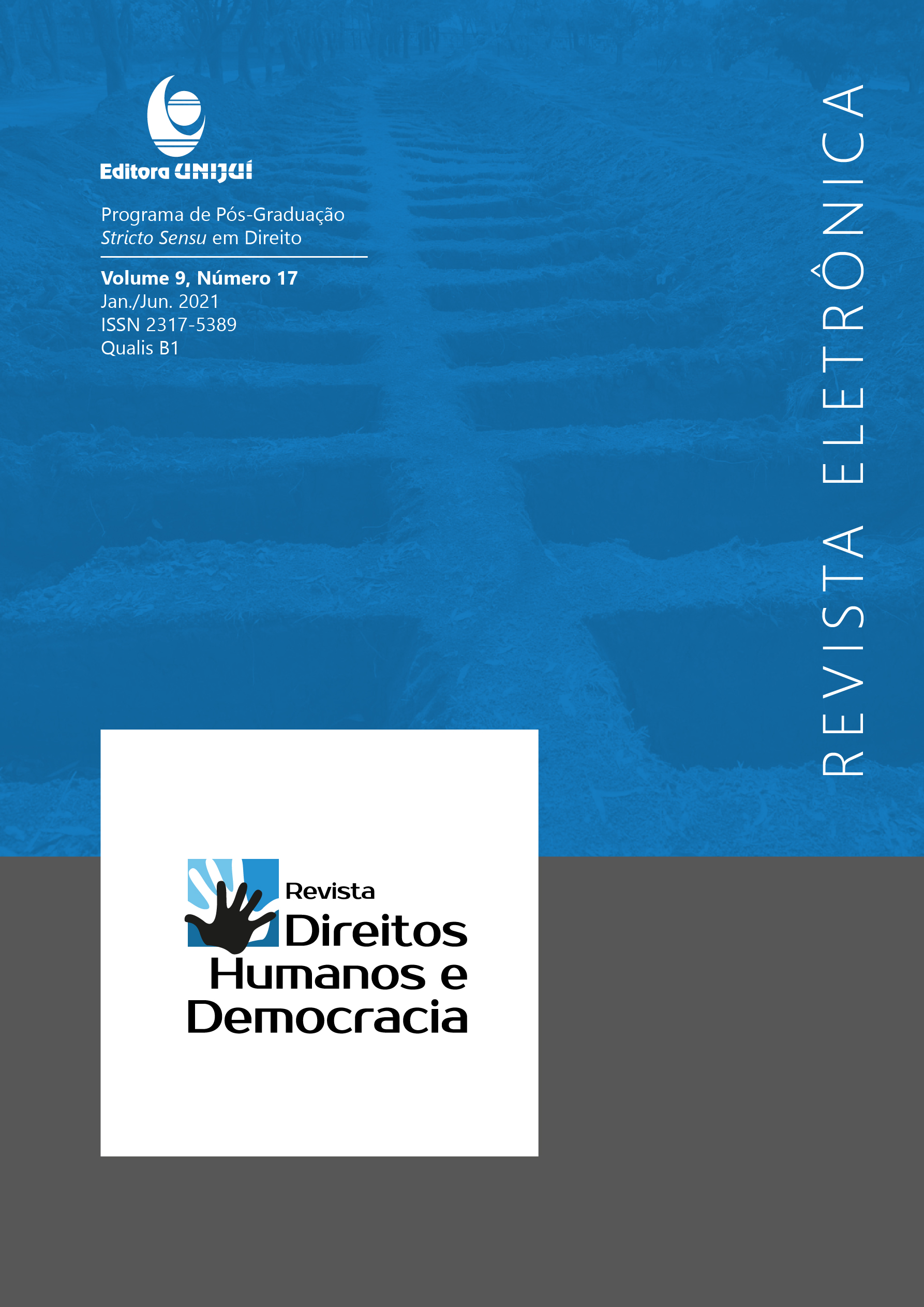THE RESPONSIBILITY OF TRANSNATIONAL CORPORATIONS FOR HUMAN RIGHTS VIOLATION:
CASE STUDY ON WORK IN SIMILAR CONDITIONS TO SLAVERY IN THE TEXTILE INDUSTRY
DOI:
https://doi.org/10.21527/2317-5389.2021.17.8959Keywords:
responsabilidade de empresas, direitos humanos, proteção nacional, proteção internacional, trabalho análogo ao escravoAbstract
As a result of the rise of wealth and economic power of large corporations, which have come to represent as new actors in the international community, there is a need for the law to ensure that the relations arising from this perspective are regulated according to the precepts disseminated in the international community. One of the main obstacles faced in this perspective is the control and repression of acts of human rights violations practiced by transnational corporations, and the purpose of this article is to analyze this problem. In order to answer the following question: what means exist to reduce and/or eliminate human rights violations by the transnational textile industry, it was necessary to study and analyze effective legal instruments for national and international control of the actions of these new actors, so that the acts of human rights violations perpetrated by these companies are adequately prevented and remedied. In order to perform this study, the hypothetical-deductive method was used, and the textile industry was selected as a way of making the analysis of the existing control instruments more accurate.
Downloads
Published
How to Cite
Issue
Section
License
By publishing in the Revista Direitos Humanos e Democracia, authors agree to the following terms:
Articles are licensed under the Creative Commons Atribuição 4.0 Internacional (CC BY 4.0), which allows:
Share — copy and redistribute the material in any medium or format;
Adapt — remix, transform, and build upon the material for any purpose, including commercial use.
These permissions are irrevocable, provided the following terms are respected:
Attribution — authors must be properly credited, with a link to the license and indication of any modifications made;
No additional restrictions — no legal or technological measures may be applied that restrict the use permitted by the license.
Notices:
The license does not apply to elements in the public domain or covered by legal exceptions.
The license does not grant all rights required for specific uses (e.g., image rights, privacy, or moral rights).
The journal is not responsible for opinions expressed in the articles, which remain the sole responsibility of the authors. The Editor, with the support of the Editorial Committee, reserves the right to suggest or request modifications when necessary.
Only original scientific articles presenting research results of interest, not previously published or simultaneously submitted to another journal with the same purpose, will be accepted.
References to trademarks or specific products are intended solely for identification purposes and do not imply any promotional endorsement by the authors or the journal.
License Agreement: Authors retain copyright over their articles and grant the Revista Direitos Humanos e Democracia the right of first publication.













